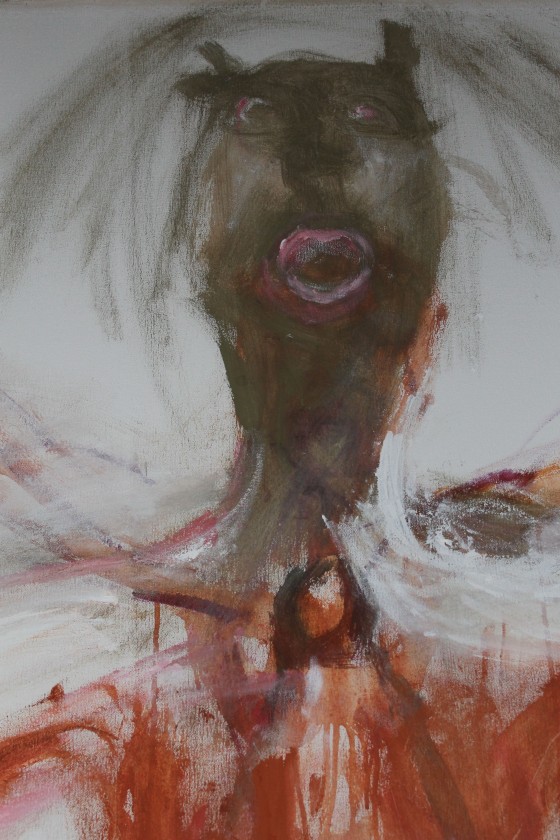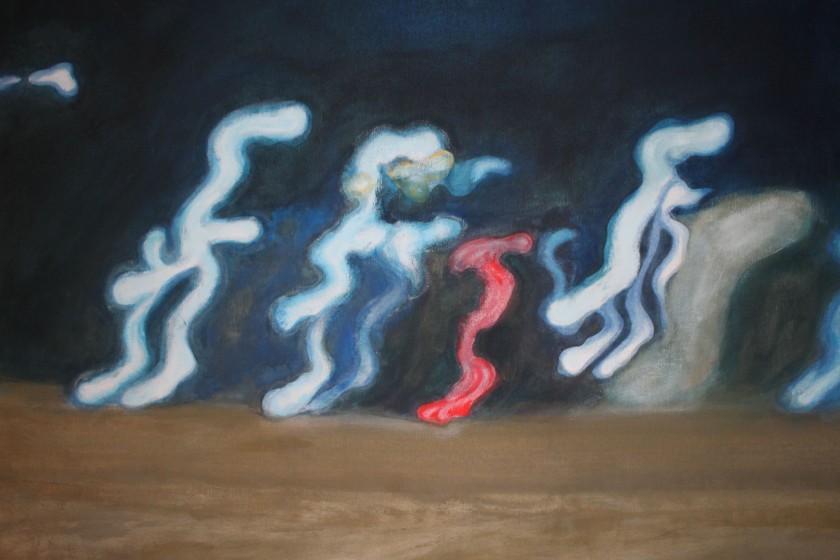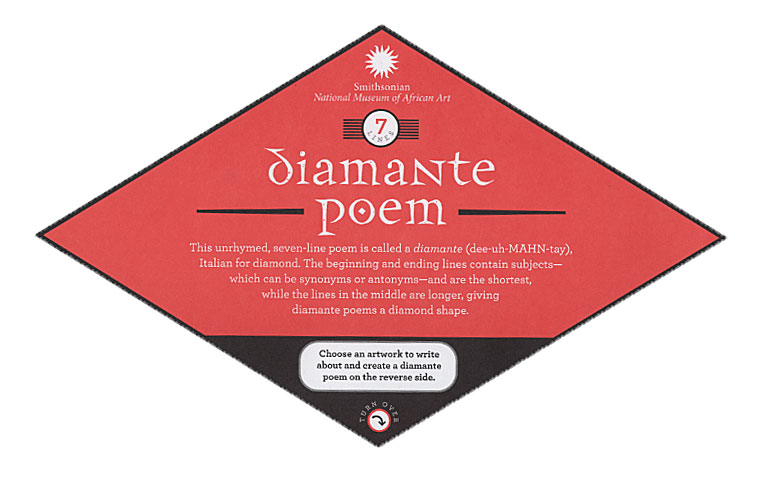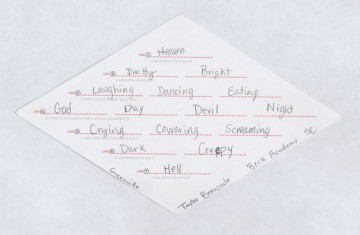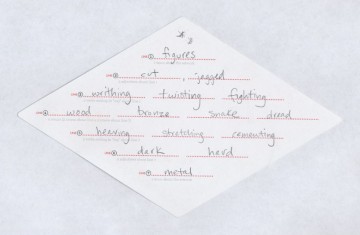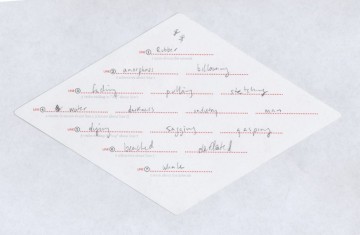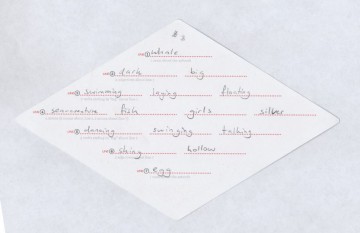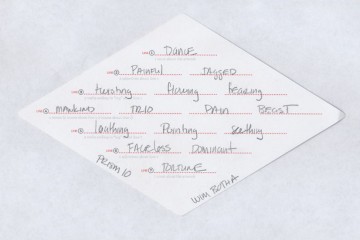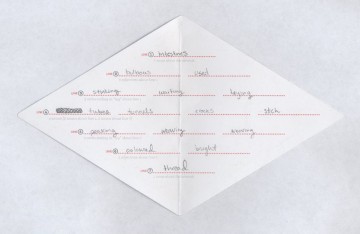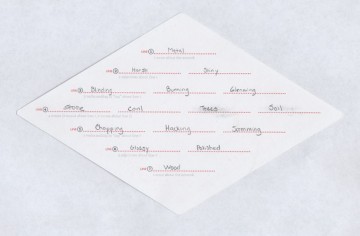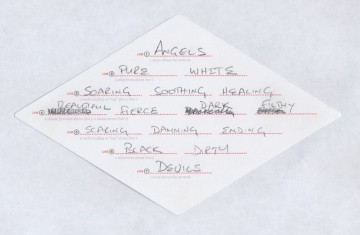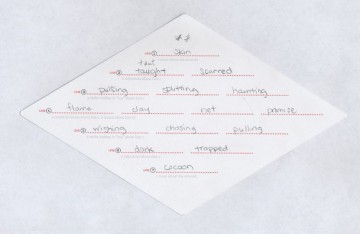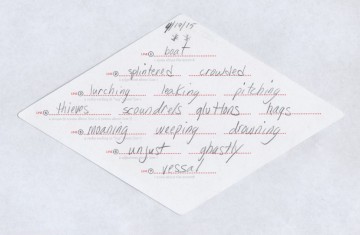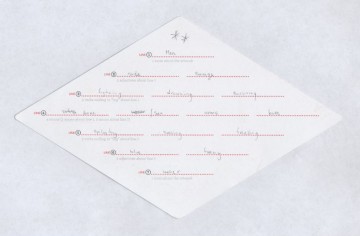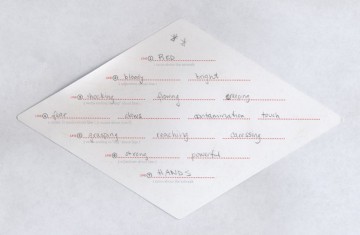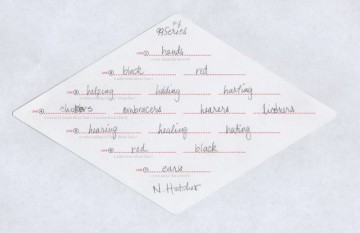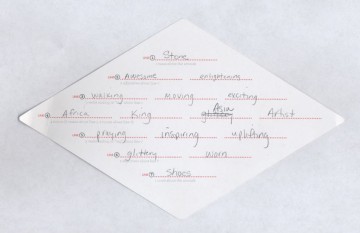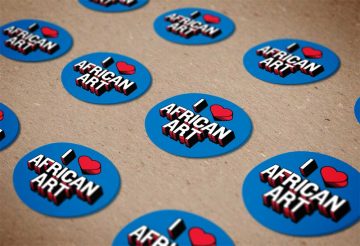The Divine Comedy Poetry Contest
Announcing the winner of the Divine Comedy Poetry Contest: Fred JoinerWatch as the artist reads the winning poem.
Below as Above
after the harmattan has emptied his last
gasp and wheeze, & we have shaken loose his dust
from our bodies and found shelter
from the Sahel’s certain heat,
when the water returns and the river is high,
this bit of sun bittered earth becomes a stage, a show
for every sweet thing we have held
back in the swelter,
our hands thank the sky, a simple wave is still a worthy praise,
our feet thank the dust and the shallows
one, for the friction that helps shed the old,
the other, for the waters that soothe new skin,
our thighs thank the soil, the unseen
nourishment for the long season without,
our hips thank the moon,
for the pull on the tides;
the orbit of gratitude, music over our heads
our mothers’ mother’s song, a chant pulled
down from the heavens, or a blessing drawn
up out of the soil’s new bounty.
About the winner
Fred Joiner is a poet and curator living in Bamako, Mali. His work has appeared in Callaloo, Gargoyle, and Fledgling Rag, among other publications. Joiner is a two-time winner of the Larry Neal Award for Poetry and a 2014 Artist Fellowship Winner as awarded by the D.C. Commission on the Arts and Humanities. Most recently, one of Joiner’s poems was selected by curator and critic A.M. Weaver as part of her 5 x 5 public art project, Ceremonies of Dark Men. As a curator of literary and visual arts programming, Joiner has worked with the American Poetry Museum, Belfast Exposed Gallery (Northern Ireland), Hillyer Artspace, Honfleur Gallery, Medina Galerie (Bamako, Mali), the Phillips Collection, the Prince Georges African American Museum and Cultural Center, and more. He is the co-founder of The Center for Poetic Thought at the Monroe Street Market in the Brookland neighborhood of Washington, D.C.
Artist Statement
Recently, my work has been engaged with my relocation to Bamako, Mali, and navigating the language, art, and culture in my new world. Overall, my work has been concerned with visual art, place, migration, and how language works for and against us.
“Below As Above” was inspired by Abdoulaye Konaté’s La Danse series.
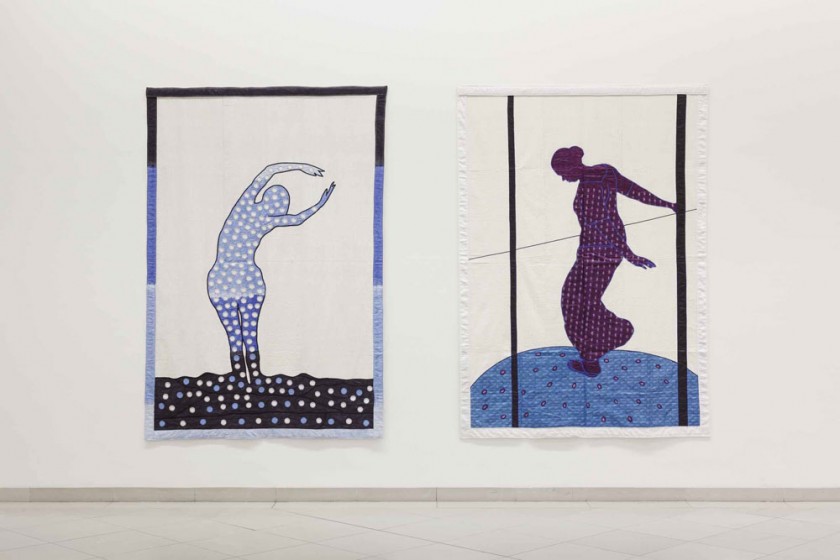
b. 1953, Mali
Dance of Kayes from La Danse series
2008
Textile, each: approx. 246.4 x 170.2 cm
(97 x 67 in.).
Collection of Saro León
Revolving; and the rest unto their dance
With it mov’d also; and like swiftest sparks,
In sudden distance from my sight were veil’d.
—Book III, Canto VII, lines 6-8, from The Divine Comedy by Dante Alighieri (trans. by H.F. Cary, London, Paris, and Melbourne: Cassell & Company, Ltd., 1892)
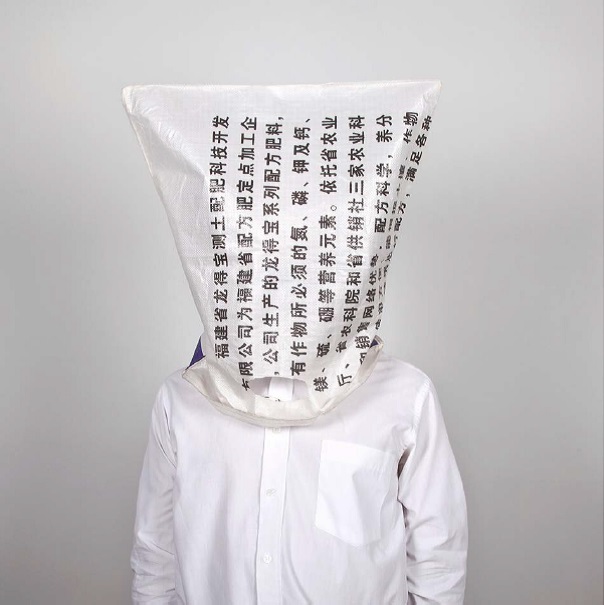
b. 1977, Angola
From Oikonomos, Luanda series
2011
C-prints Framed
Each: 105.4 x 105.4 cm (41 1/2 x 41 1/2 in.)
Collection of the artist, courtesy A Palazzo Gallery, Brescia, Italy
Photograph courtesy A Palazzo Gallery, Brescia, Italy
What aileth thee, that still thou look’st to earth?
Began my leader; while th’ angelic shape
A little over us his station took.
—Book II, Canto XIX, lines 51–3, from The Divine Comedy by Dante Alighieri (trans. by H.F. Cary, London, Paris, and Melbourne: Cassell & Company, Ltd., 1892)
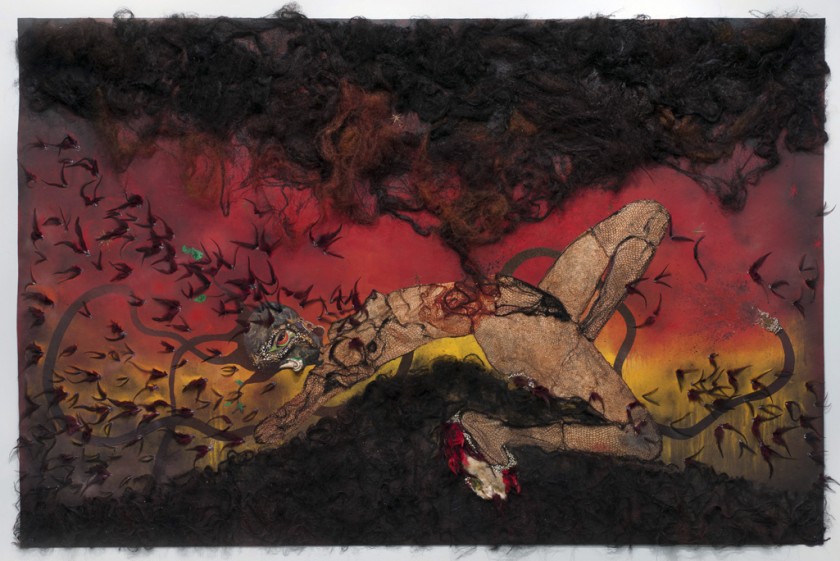
b. 1972
Kenya.
The Storm Has Finally Made It Out of Me Alhamdulillah
2012.
Collage on linoleum
193 x 295.9 x 10.2 cm
(76 x 116 1/2 x 4 in.).
Collection of the artist, courtesy Susanne Vielmetter Los Angeles Projects
My sage guide leads me, from that air serene,
Into a climate ever vex’d with storms:
And to a part I come where no light shines.
—Book I, Canto IV, lines 146–8, from The Divine Comedy by Dante Alighieri (trans. by H.F. Cary, London, Paris, and Melbourne: Cassell & Company, Ltd., 1892)
About the contest
The exhibition The Divine Comedy: Heaven, Purgatory, and Hell Revisited by Contemporary African Artists, curated by internationally acclaimed writer and art critic Simon Njami, reveals the ongoing global relevance of Dante Alighieri’s 14th-century epic as part of a shared intellectual heritage. Among the artworks in the exhibition are original commissions and renowned works by more than 40 of the most dynamic contemporary artists from 18 African nations and the diaspora, including celebrated artists Nicholas Hlobo, Julie Mehretu, Wangechi Mutu, and Yinka Shonibare MBE. The artists explore the themes of heaven, purgatory, and hell and probe diverse issues of politics, heritage, history, identity, faith, and the continued power of art to express the unspoken and intangible.
Individuals were invited to submit an original work of poetry inspired by a work in The Divine Comedy exhibition. Over 40 submissions were submitted from all over the world, including Brazil, Canada, China, France, Germany, Italy, Kenya, Mali, Nigeria, Uganda, South Africa, Tanzania, the United Kingdom, and from many states across the United States. Entering poets ranged in age from 19 to 72.
Submissions were judged anonymously by a panel of poetry experts, in consultation with National Museum of African Art staff
- Carolyn Forche, Director, Georgetown University Lannan Center for Poetry and Social Justice
- David Pike, Professor, American University, Department of Literature
- Charif Shanahan, Programs Director, Poetry Society of America
- Diane Boller, Editor, Poetry Daily
- Don Share, Editor, Poetry Foundation/Poetry Magazine
Submission to The Divine Comedy poetry contest does not preclude an individual from submitting his or her work to other venues for publication. Copyright to the work remains with the author.
“Ode” by Pélagie Gbaguidi
The exhibition The Divine Comedy features works inspired by the text and themes of Dante Alighieri’s 14th-century epic poem of the same name. Poetry inspires art—but art also inspires poetry. Artist Pélagie Gbaguidi wrote her own poem, “Ode,” to accompany her 42-foot painting, Dansleventreduserpentdanhomê, featured in the heaven section of the exhibition.
Open to read “Ode” by Pélagie GbaguidiNo objects, no subjects, no concept
Only the breath
Pieces of wood, pieces of oneself
Free choice
Delicate work
Not consumable
Work marked by an inhumanity to be shut up and undone
Work humble as a self-donation
An urgency to unveil taboos
A meditating work
As close to the physical
As an x-ray of the world, the instant
of a collective globality
As the transplant of something foreign into self
Sign of birth
Sign of becoming
What sign in the dawn of a new era?
We are eternal.
Neither dead nor alive
Who are they?
No answer
We are at an impass
The lie has lasted too long
Spirits awake
They convoke us
They undress the discourses
Five hundred years later, nobody claims them?
For all that, do the spirits give up?
At night, they sketch a sepulcher: truth
They are afraid of being forgotten
Not of death, nor of love, nor of hate
They are afraid of being forgotten
But you have so much to do; other forgotten ones are
dying in the waves of Lampedusa
What part of the lie is still hiding
What debate to invoke again; they yell:
“restitution” in unison,
But where to go?
What other banks
Chained to restore historical truth
They will not be able to die any more
Not shame not vanity not culpability
Must accept that the negro left
a long time ago, that his evocation is but the residue
of a past thought
Five hundred years later, nobody claims them?
For all that, do the spirits give up?
They are the witnesses
They are the bread and the yeast of your descendance
“Take care of yourselves,” they say
So that in five hundred years your descendants will
Acknowledge you.
No objects, no subjects, no concept
Only the breath
Pieces of wood, pieces of oneself
Free choice
They don’t ask to be loved, but to be placed on a pedestal
In your memory
When the last human disappears,
his shadow will be his witness
They will be there, brave pieces of wood to save
the imagination of the world.
Translated by Mira Joos and Anne Gregory
©pelagiegbaguidi8april2015
All images:
Pélagie Gbaguidi
b. 1965, Senegal
Dansleventreduserpentdanhomê (detail)
2013
Acrylic on canvas, marouflage
208.3 x 1308.1 x 6.35 cm (82 x 515 x 2 1/2 in.)
Collection of the artist
Photograph courtesy the artist
Diamante poem
An unrhymed, seven-line poem is called a diamante (dee-uh-MAHN-tay), Italian for diamond. The beginning and ending lines contain subjects—which can be synonyms or antonyms—and are the shortest, while the lines in the middle are longer, giving diamante poems a diamond shape.
Open for more information on how to compose a diamante poem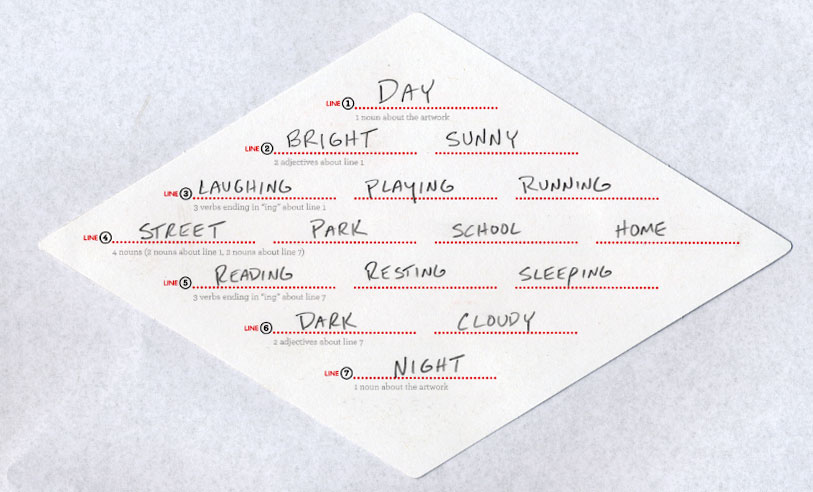
Create a diamante poem about an artwork
1. Choose two nouns about the artwork: one noun for line 1, one noun for line 7
2. Choose two adjectives about line 1
3. Choose three verbs ending in “ing” for line 1
4. Choose four nouns: two about line 1, two about line 7
5. Choose three verbs ending in “ing” for line 7
6. Choose two adjectives about line 7

